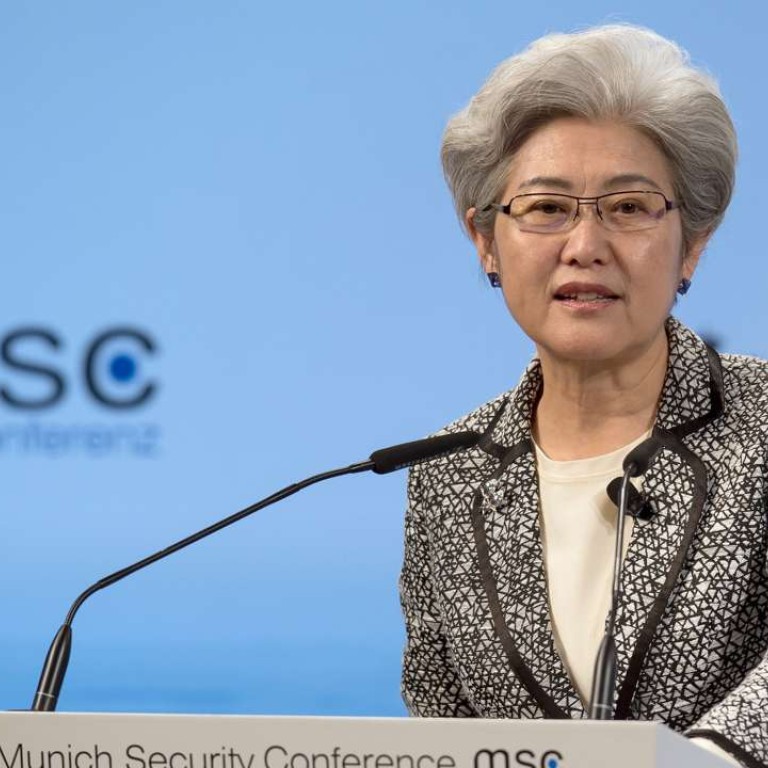
China has no intention of challenging international order, say former diplomats
Days before crucial Hague tribunal ruling on China’s South China Sea claims, former state councillor and former deputy foreign minister say Beijing has no ambition for regional hegemony or power rivalry with US
Two former top Chinese diplomats have yet again weighed into the debate over China’s increasing assertiveness in the South China Sea in a renewed effort to reassure Western critics that Beijing had no intention of challenging the international order.
Just days ahead of an impending international tribunal ruling on China’s expansive claims, former state councillor Dai Bingguo and ex-deputy foreign minister Fu Ying reiterated that China would not seek regional hegemony or enter into a power rivalry with the United States.
Fu told the Chatham House policy institute in London on Wednesday that China had no agenda to gain supremacy even though “the Western-dominated order is showing signs of weakening and failing to offer solutions to all the challenges”.
“China has a strong sense of belonging to this United Nations-led order, as China is one of its founders and a beneficiary, a contributor, as well as part of its reform efforts,” said Fu, the chairwoman of the National People’s Congress foreign affairs committee and a former Chinese ambassador to London.
Citing President Xi Jinping, she said China had “no intention to unravel the system or start all over again”. Xi last week dedicated much of his speech marking the Communist Party’s 95th anniversary to diplomacy, vowing that China was willing to work jointly with the world to promote international order that was fairer to all countries.
China has a strong sense of belonging to this United Nations-led order, as China is one of its founders and a beneficiary, a contributor, as well as part of its reform efforts
“China is not proposing ‘mutual respect’ as code words for equal power with the US. We have not accepted the ‘Group of Two’ concept proposed by the US. We do not want G2 or equal power with the US,” he said.
“We are each following our own path and cannot change what the other is doing. You will not turn the White House into Zhongnanhai, nore we will build a White House in Zhongnanhai,” Dai said.
His speech at the Centre for Strategic and International Studies in Washington was published by the Chinese Foreign Ministry in both Chinese and English.
Diplomatic analysts said Dai and Fu’s remarks were unlikely to represent their own opinions considering their places in China’s diplomatic hierarchy and the sensitive timing of their speeches.
The Permanent Court of Arbitration at The Hague will announce its ruling on July 12 over a case brought by the Philippines to challenge China’s claims. The ruling is expected to go against China despite Beijing’s rejection of the tribunal’s authority.
While extending an olive branch to the US, Fu also accused Washington of overreacting to the maritime disputes, saying its ‘pivot’ to rebalance US influence back from the Middle East to Asia had increased tensions in the region.
“For the US to maintain world supremacy, control over strategic sea passages is vital. This is probably why other countries’ maritime activities get on its nerves, like China’s reconstruction in the Spratly Islands ,” she said.
For the US to maintain world supremacy, control over strategic sea passages is vital.
Unlike other mainland officials and diplomats who usually avoid naming the US, Fu said China’s efforts to safeguard its sovereignty was largely due to the fact that “Chinese people believe that the US is behind the countries that are undermining China’s interests”.
“Actions invite reaction and misjudgements lead to responses. To overcome tension, China and the US need to have better understanding of each other’s intentions and avoid misjudgment,” she said.

